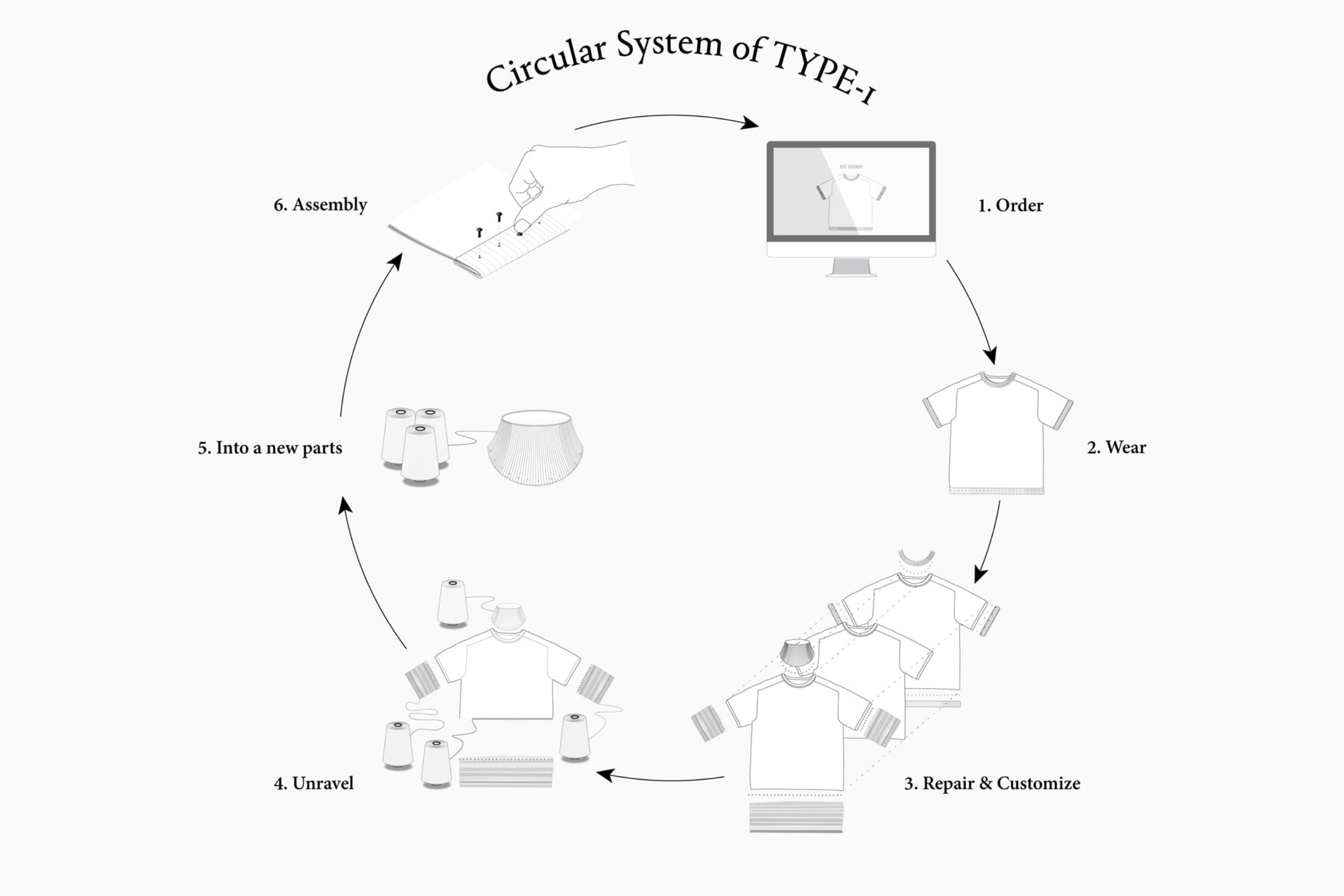Our journey for Sustainability
Thank you for your interest in our approach to sustainability.
Garment production is a lengthy process involving numerous steps, such as product planning, material procurement, production, sales, delivery, repair, and recycling. As a couture brand, YUIMA NAKAZATO constantly works to identify those approaches and practices most likely to positively contribute to society and the environment.
Our TYPE-1 knit products feature STANDARD 100 organic cotton certified by OEKO TEX. Moving forward, we are planning to shift to a material certified by GOTS (https://www.global-standard.org/), which focuses on guaranteeing human rights as well as reducing negative environmental impact.
Our current approach to sustainability focuses on two distinct endeavors: environmentally-friendly materials and garments, and the continued utilization of traditional technologies.
Thanks to our computational 3D knitting technology, we have minimized waste material in our production process. For the materials themselves, we have adopted certified organic cotton produced in Uzbekistan; grown in high altitudes that make it difficult for pests to survive, this cotton is produced without reliance on traditional pesticides. Some of the repairable parts utilized in our TYPE-1 system are made by traditional weaving machines with lace in Caudry, France, using only natural materials, as opposed to the polyester lace commonly seen in many products today. Other parts employ heritage silk from Japan, which has until now gone unused due to decreased demand for kimono production.
Since garments made using the modular TYPE-1 system can easily be repaired without requiring specific skills, customers can extend the life of their pieces by replacing damaged parts as needed. We are also working to develop a circular approach to garment manufacturing by collecting used and unwanted knit parts or clothing, unravelling them, and upcycling them for use in new products. In addition to allowing us to provide a variety of possible garment designs to our customers, we believe that the modular nature of the TYPE-1 system will also contribute to a more diverse and inclusive future in which anyone can become a clothing creator without needing specialized apparel production skills.
Finally, we are also working to optimize the materials and methods we use to distribute our garments; for now, we can guarantee that the materials used in our packaging are both safe and recyclable.
